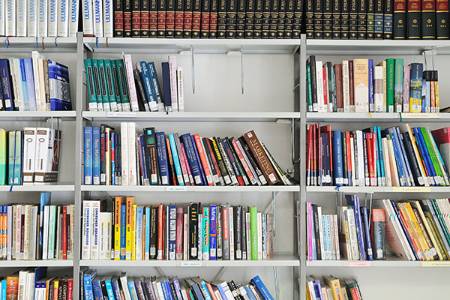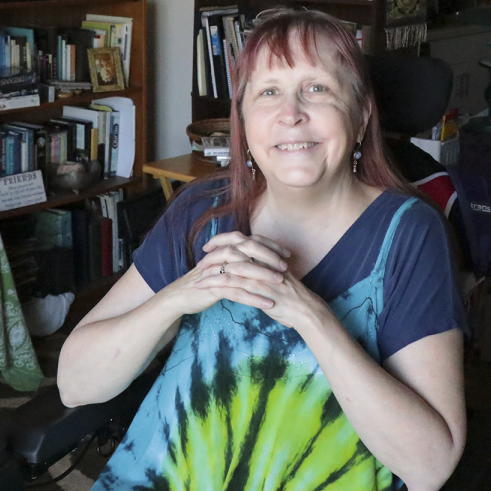A Rolling Perspective: Trust Issues

“Trusssssst in me… jusssssssst in me.” So hisses Kaa in Disney’s Jungle Book. Anyone watching the movie knew that snake was not to be trusted.
I deal with Kaa-like persons every day, especially now that I’ve entered the Medicare sign-up stage. The decisions I make now will literally affect the rest of my life: penalties if I choose the wrong plan, and even stiffer penalties if I do what I want to do, which is hide under the duvet until my enrollment period expires.
It’s not just me, I know. You, too, are bombarded on all sides—via TV, radio, internet—by journalists, politicians, health professionals, civic and religious groups, all wanting your money, your time, or both. Salespeople assail us wherever we turn, promising longer lives and happier ones if we just…whatever. We fear burial by the information avalanche, a disaster for which we feel unprepared.
But help—free, no-strings-attached, accessible to all—can be found in nearly every town and city in the US. Where is this magical place? The library.
My love affair with libraries started at age four. I thought of it as a chance to hang with Mom and read cool books about foreign lands, but I’ll bet my Mom loved the library for other reasons: meeting other adults instead of listening to us kids all the time; reading in peace; studying whatever topic she chose. Above all, it was free. It only cost money if a book was overdue.
Mom would love libraries even more now. They offer so much, especially for those of us with limited incomes or mobility.
It even offers help with my Medicare decisions! They invite an expert to come in bi-monthly to explain programs and answer any and all of our questions. Not sure if you library offers this? Ask them! Librarians are true public servants, anxious to hear what you have to say, and willing to go to great lengths to provide access to that service.
Want to know where you can find a Utah library near you? List of libraries in Utah.
Here are some more benefits you can find at many a local library:
- Free internet access. Say goodbye to pricey home internet altogether and just hang out at the library.* They may restrict usage during peak hours, but think of it as learning to sidetrack less and enjoy your screen time more. You can communicate with prospective employers, government agencies, and service providers who increasingly require internet access. And you won’t pay a dime.
- Did someone say ‘free movies’? Yes, I did. You can even place a hold on checked-out titles. And if your library is part of a larger system, you have access to everything held in that system. (Note that the checkout period is usually much shorter than that for books, and the overdue fines are much steeper.)
- It’s not just for universities anymore: quality research materials. Through the Interlibrary Loan system (ILL), you can request articles, books, and A/V materials from around the world. Around the world.** Where do you think the people who write Wikipedia get their info? Your reference librarian can help you access what you need. If you only have a vague idea, they can help you define and refine your search. If you’ve never seen a librarian do this, you’re in for a treat. It’s why they became librarians in the first place: to help people find stuff, and the more obscure, the better.
- So you want to learn how to keep bees? Or garden…or knit…or book-bind…or make documentaries? Libraries offer free classes and workshops based on their local patrons’ requests. My local library had a seed bank: free packets of seeds and detailed, printed instructions written by local gardening experts. I know Salt Lake’s main library does a whole course on bees. I haven’t been to a library yet that didn’t have a knit and crochet group that welcomed all levels of skill. Or maybe you have an interest in a particular financial or spiritual guru: if you can’t afford to see them in person, you can access the books they’ve written and listen to them on YouTube. Libraries provide headphones, too.
- Activities for children of all ages. From story time for children with autism, to service projects for teens, to K-12 writing groups, to summer reading programs with great prizes, you can’t beat the library for free access to high-quality, entertaining learning opportunities and parental support. I’ve even seen libraries in economically depressed areas offer kids free lunches in the summer. The accompanying adult pays only $2 for their meal.
- Beelines to Community Services. Whether it’s access to Dial-a-Ride, connecting your utilities, locating a women’s shelter, or finding the nearest park, the library is the best place to start—especially if you live in a small town or rural area. Few small businesses or services maintain websites where their customers are unlikely to have smartphones or home internet. (See my personal experience with this in “Lost Connection to Server.”)
- Other cool stuff: Word processing. Printing. Tax and other government forms. The driver’s license manual. Bus schedules. Maps. Magazines galore, including pricey and obscure ones you can’t afford yourself. Materials in a variety of alternate formats. Used book sales. Computer literacy training. Access to mentors. Music and dance festivals. Photography and art exhibits.
I’ve saved the best for last, though I gave a one-word clue in each list item above. What I love most about the library is its accessibility. Inside they are, hands-down, the most accessible buildings. If you can’t get there, they’ve got bookmobiles. They deliver books and movies to shut-ins and collect them when the person’s finished. You can chat with librarians by phone or internet. So many downloadable books and films exist now—even TV shows—that you may never need to pay a rental fee again. You can learn new languages and never leave your living room. You can study whatever field takes your fancy.
Your self-worth increases when you immerse yourself in a library’s resources. Instead of wondering whose version of events is true, you can find out yourself. That, to me, is the essence of real independence. It doesn’t matter what age you are, or if you’re blind, in a wheelchair, autistic, poverty-stricken, or dying of cancer: the library is there for you.
Trust me.
*Homeless persons can also get library cards through alternate means of identification which vary from library to library.
**From home you can also access the World Catalog, which is just one of the tools a librarian can use to help you find what you want or need.
Jennifer Holland taught herself to read and write at age four and has been doing both ever since. Minnesota-born and Wisconsin-bred, she nonetheless inherited the Irish perchant for travel. Despite the shoestring budget, she visited a dozen countries before her diff-ablement, and even lived in Ireland for nearly fifteen years. Her encounters with other cultures inform the quirky insights into human behavior that find their expression in her poetry, novels, and non-fiction works. When she's not reading or writing, she enjoys chair yoga, video chats with her children and gradchildren, and living happily with MS on a tiny fixed income.


